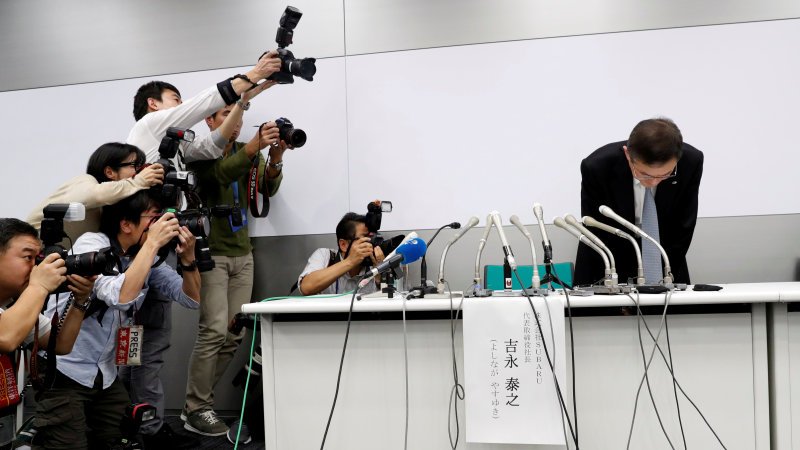Subaru, like Nissan, admits improper checks on Japan cars, expects recalls

The automaker said for more than 30 years, final inspections of new vehicles at its main Gunma complex north of Tokyo were sometimes conducted by inspectors who were not listed as certified technicians, violating transport ministry requirements.
The automaker said it was therefore considering recalling about 255,000 vehicles including its Legacy, Forester and Impreza models produced at the complex and sold at home, at a cost of around 5 billion yen ($43.86 million).
Chief Executive Officer Yasuyuki Yoshinaga at a news conference said inspectors in training for certification to sign off final checks had been approving the checks under the names of their trainers, a process the automaker followed for over 30 years without realizing it did not meet ministry requirements.
"The final inspection process is very important and we acknowledge that we did not meet requirements," Yoshinaga said. "It's always been my goal to make this company good. This issue shows that we're not there yet."
Subaru said it would report details of an internal investigation to the ministry on Monday, and that it needed to better communicate requirements to workers.
"It's always been my goal to make this company good. This issue shows that we're not there yet."
The revelation followed a similar oversight at Nissan, while Kobe Steel has been grappling with a data fabrication scandal, tarnishing Japan's reputation for quality control.
Yoshinaga said the issue was discovered during an internal inspection ordered by the ministry after Nissan late last month revealed similar violations on inspections governing vehicles sold in Japan at its domestic factories.
The ministry requires certified technicians to sign off on paperwork for final inspections for vehicles produced in Japan for the domestic market.
The extra step does not affect product quality and is not needed for vehicles exported overseas.
Toyota, Honda and other Japanese automakers on Friday said they have reported to the ministry that they found no issues with their respective inspections.
Subaru shares closed down 2.6 percent on Friday after falling more than 3 percent following media reports of the improper inspections. The broader market rose 1.2 percent.
Yoshinaga said while the issue was unlikely to affect sales overseas, including the United States, its biggest market, he was "very concerned" about the impact the issue would have on brand image.
"I'm ashamed that our company has played a role in shaking public trust in Japan's manufacturing culture," he said.
Related News
